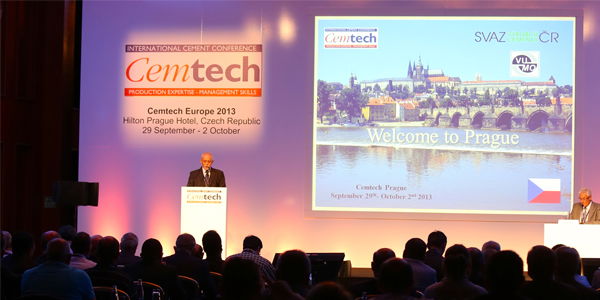Cemtech Europe 2013 has opened its doors to 200 cement industry specialists, gathered together in the magnificent city of Prague, Czech Republic, for three days of intense discussion on achieving the most efficient and competitive operations possible in today’s challenging environment.

Jan Gemrich, executive director of the Czech cement association, provides an overview
of the current status of the domestic market and advances by the local producers
While the eurozone has recently emerged from a protracted recession, the impact of the global economic crisis is still being felt across regional cement industry in varying degrees. Welcoming an international audience from over 30 countries, Thomas Armstrong, conference organiser, therefore underlined why adopting the best available technology to maintain a competitive advantage is now more important than ever. “More than simply maintaining business-as-usual performance levels, producers must go further to develop strategies and adopt manufacturing technologies – particularly in relation to energy consumption – that respond to the prevailing economic realities. “
Host country Czech Republic is a shining example of how domestic producers have adapted to difficult market trends by optimising operations and achieving lower CO2 emissions, a reduced clinker factor and more energy-efficient plants. Providing an overview of recent achievements, Jan Gemrich (pictured), executive director of the Czech Cement Association, gave an overview of particular areas of progress, notably increasing alternative fuels utilisation levels, including significant portions of biomass. One particular source of pride for the local cement industry is the reduction in dust emissions over the last 12 years, which have decreased by a staggering 98 per cent while SO2 emissions have been slashed by 65 per cent, explained Mr Gemrich.
The conference continues with over 26 informative papers delivered by sector specialists covering all aspects of the industry. From market and industry developments, to reports on innovative technologies, the agenda will enable attending delegates to engage with the most pressing issues facing cement producers today.
